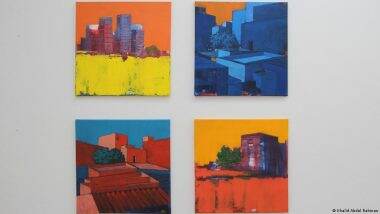In Sudan, the fighting is tearing the country apart. An exhibition in Cologne wants to shine a light on the north African country and raise awareness of the conflict.At first glance, the painting shows colorful geometric squares. On closer inspection, they are houses of Sudan's capital city Khartoum — before they were destroyed.
Also Read | World News | Countries Condemn Israel’s Jenin Attack, Terms It ‘state Terrorism’.
Another artwork, this one a photograph, shows people in discussion, seated on plastic chairs under a large bridge.
Also Read | India News | Class 9 Students Jumps to Death in Dwarka.
And yet another installation shows the floor plan of a apartment building that has been squatted in, traced on the floor with adhesive tape, while photos hanging above it recall the lives of the refugee residents.
The seven contemporary artists from Sudan participating in the exhibition "The gold of the grandmothers," currently on show at the Mouches Volantes art space in Cologne, use very different images, forms and motifs to represent the situation in their homeland.
"Gold is more than just a precious metal in Sudan," explains Larissa-Diana Fuhrmann, who curated the show with her Sudanese colleague Rahiem Shadad.
Gold is a highly-charged symbol in the African country, representing family tradition and identity. Husbands give their wives gold, which they can then pass on for several generations.
"If a woman has sold her gold, then her life has reached a low point," Fuhrmann adds. In other words, these are the people for whom misfortune is inescapable.
Sudan has sold its gold
Now, all of Sudan has sold its gold. Since mid-April, weapons have once again become the main currency in the northeast African country.
The power struggle between rival generals — the leader of the paramilitary Rapid Support Forces (RSF), Mohamed Hamdan Daglo, and the de facto head of state and army, Abdel Fattah al-Burhan — has turned into a war that is dragging Sudan, as UN Secretary-General Antonio Guterres recently lamented, "into the abyss," and at a rapid pace.
According to UN Refugee Aid, more than 500,000 people have fled to neighboring countries, while more than two million people have been displaced within the country.
"With the show, we want to draw more attention to the situation in Sudan again," says Fuhrmann, "We're making a sign of solidarity to support the artists who are in exile or still on the ground."
It's a goal shared by the project's supporters and funders — the Khartoum Downtown Gallery, the (currently closed) Goethe-Institut Sudan, the Goethe-Institut in Exile and the Goethe-Institut Bonn.
The exhibition features works by Amna Elhassan, who was also recently invited to put on a large solo show at Frankfurt's Schirn Gallery, along with art by Khalid Adelrahman, Reem Aljeally, Ala Kheir, Hashim Nasr, Waleed Mohammed and Mohammed Ohaj.
Some of the artists are making their first appearance here in Germany, for some it's even the first time in Europe. Most of them are now working from Cairo, Egypt, where they fled from the armed conflict.
Show as a sign of solidarity
"Unfortunately, media interest in the conflict is already waning again," warns Goethe-Institut representative Raoul Cyril Humpert.
DW has launched a new, Arabic-language radio program, "Sudan Now," broadcast 30 minutes a day to the region.
"The situation of the people has come to a dramatic head," says Fuhrmann, who herself lived in Sudan for several years and is still in daily contact with friends in the country since the outbreak of the fighting.
Cultural treasures have been destroyed. The scene of brutal fighting for the first time included the long-spared capital, Khartoum. "Rapid Support Forces fighters are entering homes and stealing residents' gold," Fuhrmann says. She speaks of a "new level of violence."
An improvised-looking pencil drawing by artist and architect Reem Aljeally, a student of the more famous Amna Elhassan, sums up the situation in her country: It shows a hand reaching into a wide-open backpack. It is filled with things that are currently needed to survive in Sudan: food, drink — and gold.
The exhibition "The gold of the grandmothers" runs from June 30 to July 21, 2023 in the art space Mouches Volantes in Cologne.
This article was originally written in German.
(The above story first appeared on LatestLY on Jul 04, 2023 12:00 AM IST. For more news and updates on politics, world, sports, entertainment and lifestyle, log on to our website latestly.com).



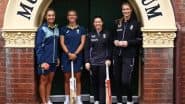
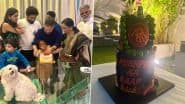
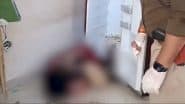
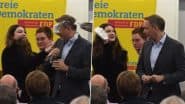
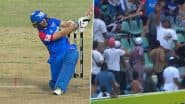



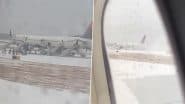

 Quickly
Quickly









